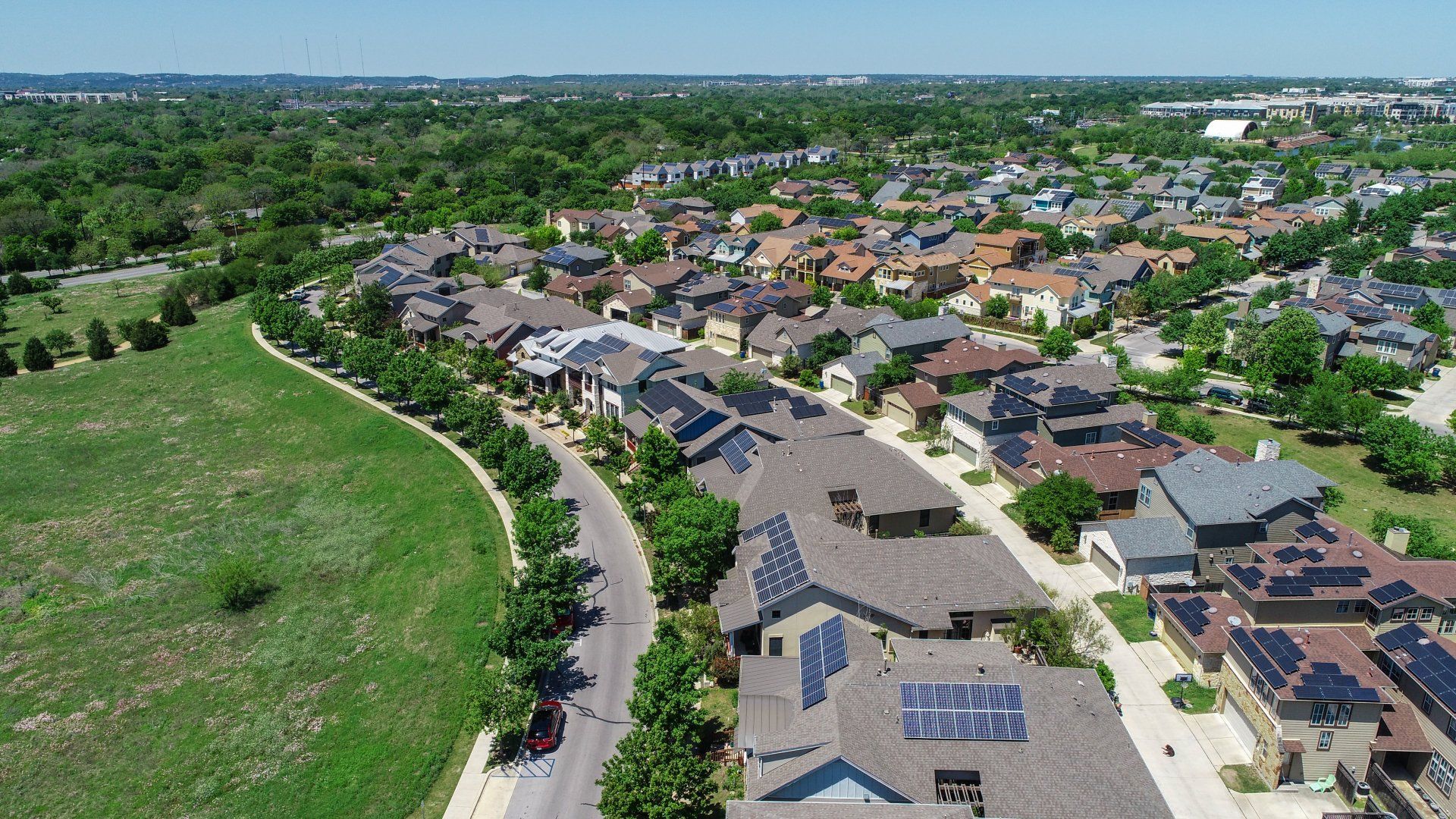Pros & Cons: Buying vs Leasing
Taylor McLean • June 22, 2021
You know you want to go solar, but aren't sure if you should lease, finance through a loan, or pay for it outright. Well, there's no "right" answer to this. The fact of the matter is, there are ways for almost anyone to reap the benefits of going solar, and each option depends on your situation, needs, and goals. Let's break it down:
Solar Lease/PPA (Power Purchase Agreement)
A Solar Power Purchase Agreement (SPPA) is a financial arrangement in which a third-party developer owns, operates, and maintains the photovoltaic (PV) system, and a host customer agrees to site the system on its property and purchases the system's electric output from the solar services provider for a predetermined period.
Pros:
- $0 down
- You can typically expect 10-20 percent savings over utility bill costs with a solar lease or PPA.
- More qualifying options if you cannot qualify for a solar loan.
Cons:
- You do not own the solar equipment on your property.
- If you sign a solar lease or solar PPA, the tax credits and other financial incentives belong to the owner of the system (not you).
- You agree to purchase the power generated by the system at a set price per kilowatt-hour (kWh) (i.e. $0.15 per kWh) instead of paying a fixed amount per month. Because solar panels typically produce more electricity during the summer than during the winter, most people with a PPA have higher solar bills in the summer during the summer months. Although it does typically even out on average in your yearly average.
- If you move you do not re-coupe your expenses.
Solar Loan
With a solar loan the homeowner borrows money from a lender, either a bank or a solar company, and then pay it back with interests through monthly installments. Solar loans help homeowners go solar for $0 down while financing the whole system.
Pros:
- $0 down
- You can typically expect 15-30 percent savings over utility bill costs with a solar loan.
- The homeowner owns the solar system fully by the end of the loan's term when fully paid off.
- Lock in your monthly payment so you know exactly how much you owe each month.
- Low interest rates
- Loan is transferable
Cons:
- The interest rate affects the total cost of the loan over its lifetime.
- It can be difficult to qualify if you don't have adequate credit or taxable income.
Cash
Paying for your solar system in cash is exactly what it sounds like, you own your system outright, day one.
Pros:
- Own your solar system, day one.
- No interest, lowering your total system cost.
- No monthly payments.
Cons:
- Large upfront costs that could be invested elsewhere with how low interest rates are for loans.

Your neighbors are going solar left and right! What's the deal? In an effort to encourage Americans to use solar power, the U.S. government offers tax credits for solar-powered systems. The Solar Investment Tax Credit (ITC) is a 26 percent tax credit for solar systems on residential and commercial properties. The ITC is one of the most important federal policy mechanisms to support the growth of solar energy in the United States. Since the ITC was enacted in 2006, the U.S. solar industry has grown by more than 10,000% - creating hundreds of thousands of jobs and investing billions of dollars in the U.S. economy in the process. Why now? When the ITC first passed, the value of the credit was at 30 percent in 2005 , but it fell to 26 percent in 2020 . The latest extension of the solar tax credit came last December, and it gives homeowners and businesses up to a 26 percent credit on the net cost of a solar system. The 26 percent credit is in effect for two more years before it drops to 22 percent in 2023 and fades out altogether for homeowners in 2024 . The credit for businesses follows a similar path, with the exception being that its credit falls to 10 percent in 2024 and will stay at that number in future years. Unfortunately many states and power companies didn't adopt the Net Metering Program right away, giving homeowners a limited amount of time to reap the benefits of residential solar and the ITC in their area. While net metering has been allowed in the state of Florida since 2008, your power company might not have integrated it until fairly recently, which is probably why it's news to you! How do I claim the ITC? The first step of taking advantage of the ITC will be getting solar on your roof! Flo Energy is a local solar dealer in the Tampa Bay Area, and works alongside Element Renewables Group to manage and install your solar project from start to finish. Going solar used to be a big project for homeowners to take on. Most people don't have the time or resources readily available to retrieve panels, pull permits, find contractors certified install their solar system, and get their system turned on, all on their own. We want you to take advantage of the ITC before time runs out! Flo makes it possible for you to choose to go solar in a simple Energy Consultation, while we do all the dirty work to get the glass on your roof and start saving you money. For more information on how the ITC can apply to you, check out these resources: PDF Download - U.S. Department of Energy - Homeowner's Guide to Federal Tax Credit for Solar Photovoltaics Article - U.S. Department of Energy - Homeowner's Guide to Federal Tax Credit for Solar Photovoltaics Article - Duke Energy - How to Calculate the New Federal Solar Tax Credit in 2021

Congrats! You've taken the first step to go green, and not only that, you're going to save money doing it! So you've set an appointment for an Energy Consultation with Flo Energy, what now? A Solar Energy Consultation generally takes 30 minutes to an hour. To make that time productive, it's important for us to have accurate information regarding your home and energy consumption so we can make an accurate proposal tailored specifically to you. For that reason, we ask for a picture of your power bill or your monthly kilowatt usage so we can determine the number of panels needed to produce the amount of power you consume! If you already provided your power consumption data, you are good to go . If not, you can do so here . Some other ways you can aid in your Energy Consultation running smoothly are: Confirm your appointment. Respond to your Flo Energy Consultant's confirmation text to help him optimize his schedule so he can give you his undivided attention. Invite your spouse. If you are married, or share these decisions with another member of your household, make sure they are present as well! Having your spouse present allows them to learn, ask questions, and feel just as confident in Flo as we know you will be. Clear a table. Your Energy Consultant will have a clean presentation prepared for you. Having a table cleared will allow him to show you the numbers and teach you about the program, free of distractions. We are thrilled to be a catalyst in your journey to go solar. See you soon!
